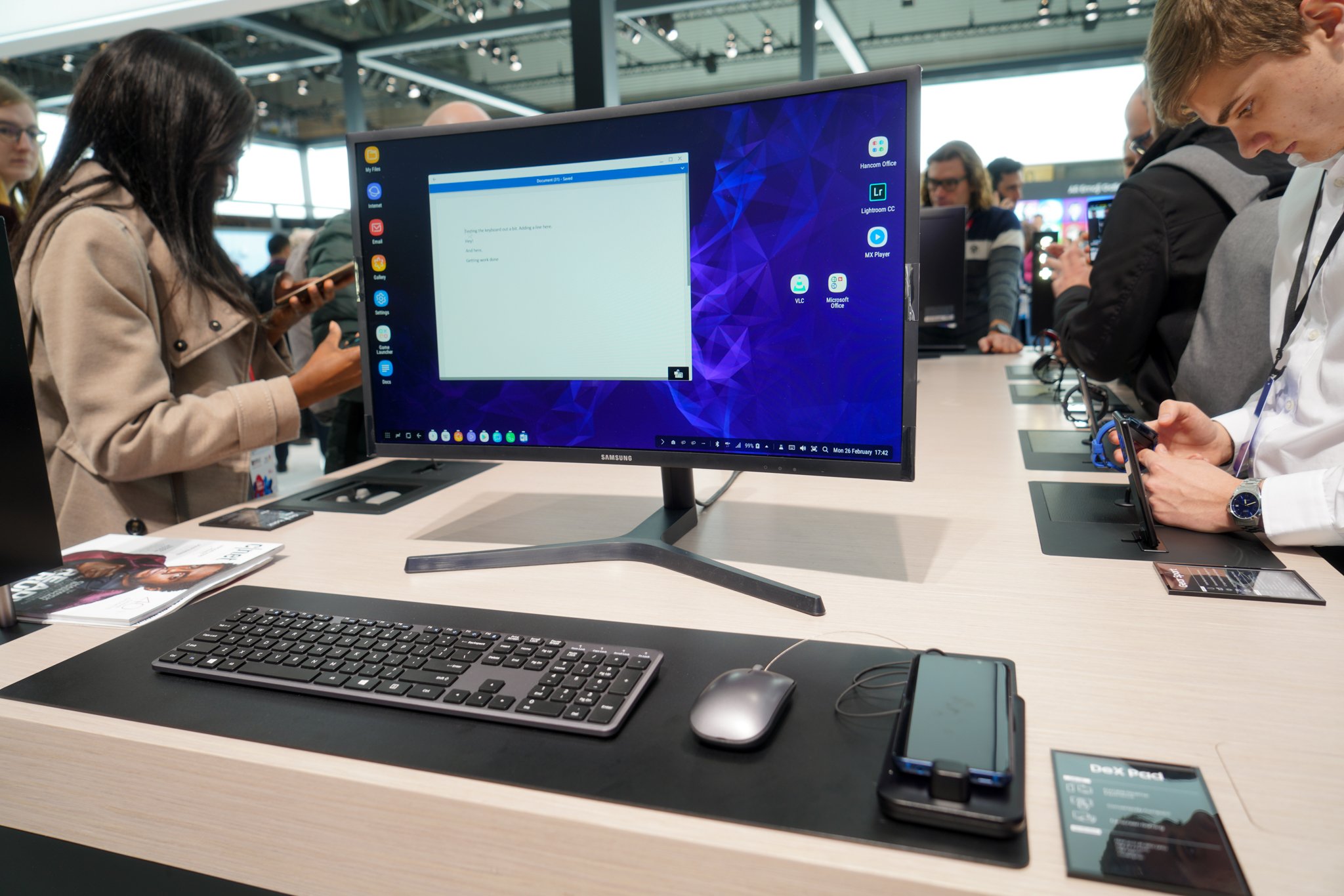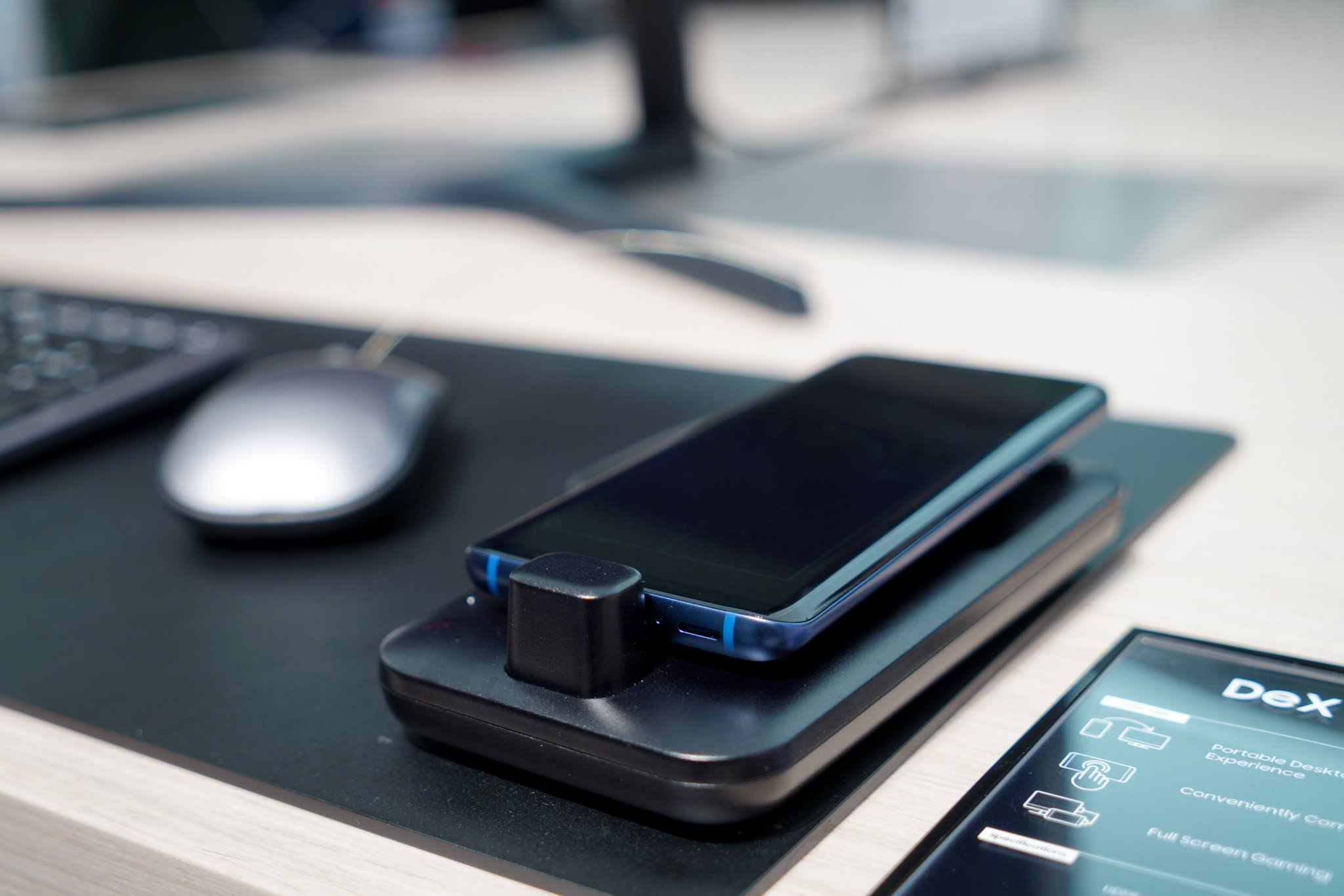What Samsung DeX can learn from the HP Elite x3
Samsung's second generation Continuum-alike for the Galaxy S9 is better than last year, but it's still not as good as the system HP built for the Elite x3 back in 2016.


Now the buzz from Mobile World Congress has died down a little bit, I've had time to properly go back and digest all the news. For Windows fans, predictably a slow show, with Android once again the overarching dominator.
The pack leader has to be the Samsung Galaxy S9, as anyone could have predicted before the event. But while the phone itself gets all the headlines, I've been curious to see where the Continuum-alike DeX was going for 2018. And I'm still disappointed.
In 2016 HP produced a portfolio with the Elite x3 that showed how to do this. And I'm a little surprised that it's still the best implementation so far of turning a phone into a PC. Samsung and anyone else trying this need to take a look at what late-2016 Windows 10 Mobile had to offer.
Samsung DeX 2.0

To be clear up front, I'm not comparing the software here, at all. Comparing a now out to pasture OS with Samsung's latest creation based on Android is both unfair and ridiculous. This is all about the hardware.
So, what did Samsung do for its second attempt at turning a Galaxy into a PC? It's all focused on the dock, and this latest version turns it into something useful, rather than just a cradle for the phone.
It's now a flat rectangle that the phone lies in. Now, just as you can use a Windows phone with Continuum support as a wireless trackpad, so too you can move your finger around on the Galaxy S9 in the same way. It's honestly a neat improvement and shows that Samsung is at least putting thought into improving the user experience.
But there's one thing that's still the same: It's a desktop experience.
Get the Windows Central Newsletter
All the latest news, reviews, and guides for Windows and Xbox diehards.
Desktops aren't portable, throw in a laptop dock
This notion of the phone in your pocket also being a capable PC is an exciting one. Anyone who has followed Windows phones in the last few years has already experienced it. But one thing that never gelled with me with Continuum was that it always seemed to be a desktop experience. When the Lumia 950 phones launched, they were accompanied by a desktop dock to turn the phone into a desktop PC. Indeed, the Elite x3 even, the focus here, shipped with a desktop dock.
I used to travel a lot for work in a past life, spending at least two or three nights a week in a hotel with a laptop and working on remote sites. Plugging a phone into a TV in a hotel to use like a PC is not practical. For starters, to get real work done you need a keyboard and a mouse. There's also the fact that in some hotels you just can't connect anything to the TV. See my trials and tribulations using Continuum in Hong Kong and China for an example.

That's just one example, but it's one I've heard a lot and seen a fair deal of on social media in the past week or so as well. If you think Samsung DeX can be your mobile PC, I've got bad news for you. There are scenarios you could see docking your phone in a remote location and using it like your own portable PC, but unless a company had a serious enterprise push on these, presumably there would be an actual PC you can use there. Unless ...
What you need, what Samsung needs, is a laptop dock to hook it up to. Just like the HP Lapdock. A laptop dock enables truly mobile computing from your phone. If you're going to use something like this, why wouldn't you want to use it like a laptop? No-one takes a desktop PC with them. If you're doing the whole "look our phone can also be a real PC" thing, make it be a real portable PC.
Razer's concept nails it
Even though it's just a concept, Razer actually demoed what I think a system like this should be back at CES. The company's Project Linda concept is essentially what HP had going with the Elite x3 Lapdock crossed with Samsung's latest DeX dock. Built for the Razer Phone, the smartphone becomes the touchpad but to a laptop, not a desktop.
And this is the key part of all this. Microsoft might have been years ahead of the competition with some of its ideas, but we are where we are and it's the Android crowd now getting the headlines. But people who want or need a desktop PC have a desktop PC. Is it at all reasonable to think folks are going to buy a keyboard, mouse and monitor to use with their smartphone instead of a PC? I don't think so. And if you already have those things, you probably have the PC to go with them.
The HP Elite x3 runs a now dead OS and is still the yardstick for turning a phone into a PC
What Razer showed off was basically a version of its Blade laptop powered by a phone. Samsung also makes (pretty awesome) laptops, as does Huawei, another company to try the whole phone as a PC thing.
Many Windows Central regulars will continue to hang on to Andromeda and what that may or may not eventually bring to the table, but Android phone makers have a different path to follow. It seems, at least for now, Samsung is certainly going to continue plowing ahead with DeX, but next time around it really needs to have a laptop element to it.
Otherwise, what's the point?
The HP Elite x3: Years ahead of its time, running a now dead OS and still the yardstick for turning a phone into a PC.
More: Full coverage of the Samsung Galaxy S9 at Android Central

Richard Devine is a Managing Editor at Windows Central with over a decade of experience. A former Project Manager and long-term tech addict, he joined Mobile Nations in 2011 and has been found on Android Central and iMore as well as Windows Central. Currently, you'll find him steering the site's coverage of all manner of PC hardware and reviews. Find him on Mastodon at mstdn.social/@richdevine
